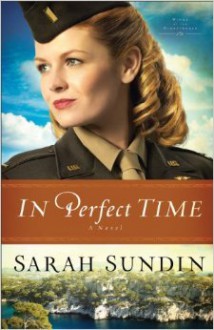
On July 18, 1854, two British warships under the command of Captain Erasmus Ommaeny bombarded the monastery on the main island in the Solovetskie Islands in the White Sea. The monastery itself had no real military or political value, but as Ommaney lacked the forces necessary to attack the main Russian base in the area at Archangel he decided that the monastery was a suitable enough target to win his men plaudits at home. After the outdated Russian batteries defending the monastery were destroyed, Ommaney demanded the surrender of the place; when this was refused he launched a second bombardment before sailing away in frustration, his bold military action having caused a total of six casualties, all among his own men.
There is no mention of Ommaney's adventure in Orlando Figes's history of the Crimean War, which is unfortunate considering how nicely it encapsulates the pointlessness that is a dominant theme of his assessment of the conflict. Its absence is also revealing, as it shows Figes's focus to be squarely on the eponymous theater of the war. There is some discussion of the combat in the Caucauses, a couple of passing mentions of fighting in the Baltic and no mention of battles anywhere else. This is also unfortunate, as it would have been interesting to see him employ the same penetrating analysis to these other overlooked theaters that he applies to the fighting in the Crimea. His book offers a reexamination of a often-overlooked conflict, one that demonstrates its underrated significance to the history of Europe in the 19th century.
Figes spends the first part of the book teasing out the complicated origins of the war. While many factors were involved, he considers the role of the Russian tsar Nicolas I to be the most significant one, giving greater weight to religion as a motivating factor in his actions than have previous historians. Yet this only served to define some of the particulars of what was an ongoing struggle between the major European powers over the fate of the Ottoman Empire and her territories. Pressured by Russia, the Ottomans received support from Great Britain and France, each of whom were motivated by different interests and seeking different goals.
Achieving their various goals eventually cost the sides involved far more than they had anticipated. When war did break out in 1854, the British and the French were divided as to what to do to strike at the Ottomans. Eventually an assault on the Russian Black Fleet and their main naval base at Sebastopol became their goal, motivated as much by the allies' desire to move their forces out of cholera-afflicted Bessarabia as anything else. Their landing and subsequent advance soon developed into a ponderous siege of the town. Here Figes excels in describing the siege and the major personalities involved, capturing the bravery of the men and the appalling errors which were made by their leaders in waging it. The fall of Sebastopol, along with Nicholas's death and succession by his reform-minded son Alexander II, led to a negotiated peace that was a humiliation, one which was soon reversed by a combination of adroit diplomacy and fortuitous timing. Figes concludes with a chapter in which he looks at the weight given to the conflict in the national imaginations of the various countries which sent men to fight and die there, a few of whom were immortalized but most ultimately forgotten.
Figes's book is a superb history of a often-overlooked war. His background in Russian history and his command of the Russian-language sources allows him to provide a far more complete examination of the conflict than exists in most English-language accounts, while his abilities as a writer help bring the war to life. In this sense Ommaneny's escapade can go unnoticed, overshadowed as it was by the far larger and bloodier farce that took place further south that Figes recounts with both humanity and insight. The result is a book that, while far from the final word on this complex and multifaceted conflict, is unlikely to be bettered anytime soon for the author's success in providing such an entertaining and informative account of a war that has long been denied its due.

 Log in with Facebook
Log in with Facebook 


















